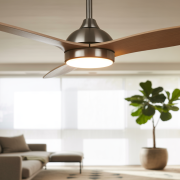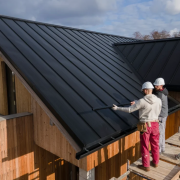If you live in a high-altitude area where the air is thin and the temperatures often drop to bone-chilling levels, you need a heating system that works well. Altitude has a big effect on furnaces, which are important parts of central heating systems. The lower air density changes the way fuel burns, and if a heater isn’t built or set up to work at high elevations, it might not work right or even be dangerous.
The lower atmospheric pressure that occurs at greater heights results in a lower concentration of oxygen molecules in the air.
For furnaces to work well, the fuel and air must be mixed just right. This balance is thrown off when there’s less oxygen, which can cause incomplete burning. This not only reduces the efficiency and output of the furnace but also increases the likelihood that it will emit hazardous byproducts like carbon monoxide.
These difficulties highlight the importance of selecting high-altitude-capable furnaces or adaptable models. Are you interesting in investing in a high-altitude performing furnace? You can also learn more by checking out this link https://www.hvac.com/expert-advice/how-to-buy-furnace/.
As a homeowner, you can make an informed choice by following these tips:
Look into the features of altitude compensation

It would be great if high-altitude heaters let you change the ratio of air to fuel. This makes sure that the heater can make up for the fact that there’s less oxygen at higher elevations, which is important for burning fuel efficiently.
Moreover, some furnaces come with high-altitude kits made just for them. These are groups of parts meant to change how the furnace works so that it can work at high elevations. If the model you’re thinking about has this feature or lets you add it on, it’s a good sign that it will work well in high places.
Look at ratings for efficiency
Another important thing to know is that Annual Fuel Utilization Efficiency, abbreviated as AFUE, is a rating that determines how effectively a furnace transforms fuel into heating energy. A higher AFUE number means that the energy is being used more efficiently.
It’s important to think about this for any furnace, but it’s particularly important at high elevations where thinner air can make the burning process less efficient. Even in these tough conditions, an efficient heater will make sure you get the most heat from your fuel.
Furnaces that have two stages of operation or flames that may be modulated are able to adapt their output to meet the precise heating requirements of any given moment. This function can be especially helpful in places at high elevations where temperatures change a lot. Discover more helpful tips on this page.
Opt for sealed combustion furnaces
For the purpose of the combustion process, sealed combustion furnaces pull air from the surrounding environment. In regions located at a high altitude, this can be a substantial benefit.
In these places, the air inside can be even less thick than the air outside, which is already pretty thin. The great thing to know is that these furnaces can work better and safer because they use denser air from outside to burn.
Look at the credentials and suggestions
Check to see if the furnace you’re considering has received any relevant certifications. Certifications can show how safe, well-made, or effective something is. Check out this link for more https://realtybiznews.com/ensure-hvac-performance-and-longevity-with-these-tips/98777387/.
Also, look for models that experts or your peers have said are good for use at high altitudes. Reviews can be very helpful, especially ones from people who live at the same altitude as you.
Talk to an expert in the area
Local HVAC professionals will know directly what problems come up when installing furnaces at high elevations. They can tell you which models are the most reliable, which ones work best in your area, and what adjustments or maintenance are needed to make sure they last.
Why hire a professional HVAC company?

Furnaces are complicated units that need to be set up carefully to make sure they work well and safely. Technicians at a reputable New Mexico HVAC company are experienced in the intricacies of installing a wide variety of furnace makes and models.
Because they have so much experience, they can predict and fix problems that might come up during the installation process. This knowledge makes sure that the furnace is not only set up correctly but also works at its best.
Moreover, when a heater is installed incorrectly, it can pose serious safety risks. It’s possible for gas to leak, which can start fires or expose people to dangerous fumes like carbon monoxide. HVAC experts know how to safely work with gas lines, electrical parts, and exhaust systems.
They make sure that all the links are safe, that the exhaust systems are properly vented, and that all safety rules are strictly followed. This makes sure that the heater works without putting anyone in the house in danger.
In order to maintain their warranty’s validity, several furnace manufacturers require that the device be installed by licensed technicians.
Do-it-yourself or sloppy installations can void the guarantee, leaving homeowners with no way to get help if problems arise later. A professionally installed furnace will also last longer because any problems that could arise during installation would be avoided. Follow this page for more info on the topic.
You should also know that a furnace may still heat a home if it’s improperly installed, but it will not perform as well. Professionals in HVAC make sure that the heater is calibrated correctly, that the ductwork is sealed properly, and that the unit is running as efficiently as it can.
This not only promises the best heating performance, but it also makes sure that people get the most out of the energy they use.
And lastly, homeowners may rest easy when they hire professionals to install their furnaces. Having professionals handle everything from determining how much heat is needed to testing the finished product gives you peace of mind.













Comments